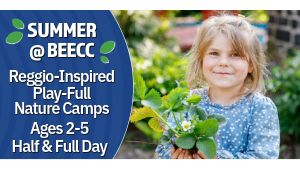By Dr. Michael Oberschneider, Ashburn Psychological & Psychiatric Services
Dear Dr. Mike,
What is the difference between a highly sensitive child and one with Sensory Processing Disorder (SPD)? They sound very similar when I read articles about them.
My 3-year-old has always been highly emotional and a bit of a challenge. There are other behaviors, but lately, she gets very worked up about smells. She often complains about “stinky things” and gags and has gotten to a point where she cries if our poor old dog gets in the vicinity of her. These kinds of things always have me wondering if she is just a “highly-sensitive” or if there is something more going on. How does a parent know the difference?
Dear Concerned Parent,
Sensory Processing Disorder (SPD), also known as Sensory Integration Disorder, is a neuro-developmental disorder that is usually diagnosed in early life. A child is diagnosed with SPD when there are significant or severe range sensory issues that are negatively impacting his or her daily functioning and development.
More specifically, SPD occurs when a young child has significant problems integrating his or her various senses toward appropriate responses in a given environment or moment. Information comes in through our various senses; we experience the world via what we see, taste, smell, hear, and touch, and young children can sometimes have difficulty organizing or integrating those various sensory modalities. Children with SPD are either hypersensitive (overly-responsive) or hypo sensitive (under-responsive) to incoming sensory material.
Some examples may include a young child:
• Covering his or her ears when flushing a toilet
• Itching and scratching in response to certain types of fabric and clothing
• Experiencing motion sickness in a car
In all of these examples, the information coming in through the senses is too much for the child to manage. The child can then become flooded with strong, negative feelings with attendant problems. Children with SPD can experience problems in social, emotional, and behavioral functioning, and they can also have problems involving activities of daily living, motor/movement, and attention.
The discovery of SPD as a condition is credited to Dr. Anna Jean Ayer’s work with learning disordered children in the 1960s. Today, child psychologists and child occupational therapists remain the primary diagnosticians for the condition. Assessment for SPD typically involves numerous quantitative measures and qualitative observations and analysis.
Based on what you have written, it seems that your daughter is hypersensitive to pungent odors; her discomfort and strong reaction to certain odors and smells is significant compared to other children her age. While she is “highly-sensitive,” she may or may not meet the full criteria for SPD since having sensory sensitivities is not uncommon for toddlers.
I recommend that you first try to address the problem at home where you gradually expose your daughter to the smells and odors she has difficulty tolerating. You could start by making a game out of it, which might help to make problem-solving in this area more attractive for your daughter. For example, you could get some containers and put different herbs in them, and your daughter could try to identify the scents blindfolded. You could have your daughter rank order the scents from her most favorite to her least favorite.
P.U. The Guessing Game of Smells is a board game for children that can help children with olfactory sensory mastery. The game is divided into three categories of smells: good smells, stinky smells, and mysterious smells. While the game is for children five-years-old and older, you could play it less formally with your younger daughter. By playfully exploring different smells and odors with your daughter, and with supportive practice and repetition, it is my hope that her tolerance for “stinky things” improves.
If, however, your daughter’s problem with odors does not improve within a reasonable time, or if other sensory struggles emerge for her, I recommend that you meet with a child psychologist and/or child occupational therapist to address things formally.













